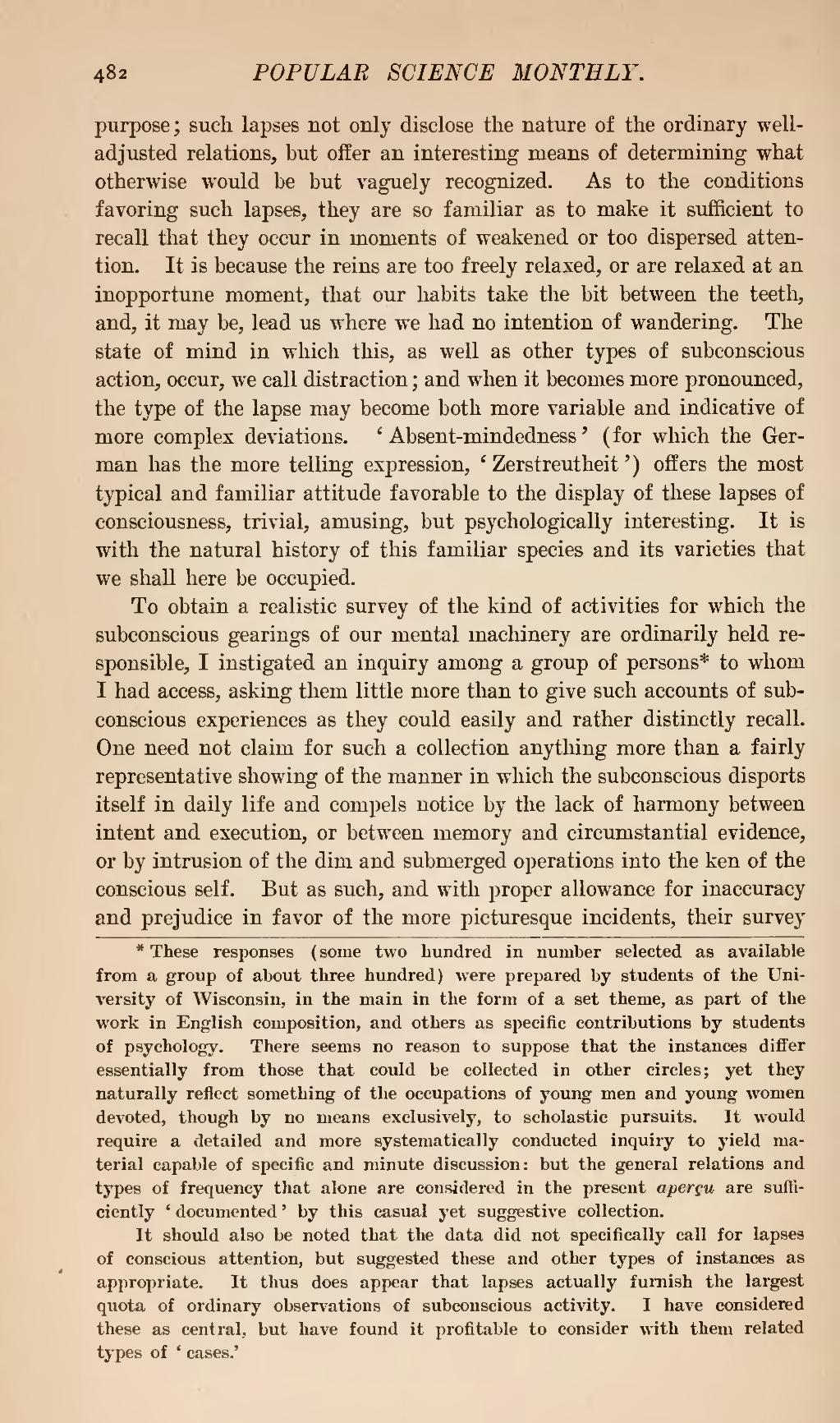purpose; such lapses not only disclose the nature of the ordinary well adjusted relations, but offer an interesting means of determining what otherwise would be but vaguely recognized. As to the conditions favoring such lapses, they are so familiar as to make it sufficient to recall that they occur in moments of weakened or too dispersed attention. It is because the reins are too freely relaxed, or are relaxed at an inopportune moment, that our habits take the bit between the teeth, and, it may be, lead us where we had no intention of wandering. The state of mind in which this, as well as other types of subconscious action, occur, we call distraction; and when it becomes more pronounced, the type of the lapse may become both more variable and indicative of more complex deviations. 'Absent-mindedness' (for which the German has the more telling expression, 'Zerstreutheit') offers the most typical and familiar attitude favorable to the display of these lapses of consciousness, trivial, amusing, but psychologically interesting. It is with the natural history of this familiar species and its varieties that we shall here be occupied.
To obtain a realistic survey of the kind of activities for which the subconscious gearings of our mental machinery are ordinarily held responsible, I instigated an inquiry among a group of persons[1] to whom I had access, asking them little more than to give such accounts of subconscious experiences as they could easily and rather distinctly recall. One need not claim for such a collection anything more than a fairly representative showing of the manner in which the subconscious disports itself in daily life and compels notice by the lack of harmony between intent and execution, or between memory and circumstantial evidence, or by intrusion of the dim and submerged operations into the ken of the conscious self. But as such, and with proper allowance for inaccuracy and prejudice in favor of the more picturesque incidents, their survey
- ↑ These responses (some two hundred in number selected as available from a group of about three hundred) were prepared by students of the University of Wisconsin, in the main in the form of a set theme, as part of the work in English composition, and others as specific contributions by students of psychology. There seems no reason to suppose that the instances differ essentially from those that could be collected in other circles; yet they naturally reflect something of the occupations of young men and young women devoted, though by no means exclusively, to scholastic pursuits. It would require a detailed and more systematically conducted inquiry to yield material capable of specific and minute discussion: but the general relations and types of frequency that alone are considered in the present aperçu are sufficiently 'documented' by this casual yet suggestive collection. It should also be noted that the data did not specifically call for lapses of conscious attention, but suggested these and other types of instances as appropriate. It thus does appear that lapses actually furnish the largest quota of ordinary observations of subconscious activity. I have considered these as central, but have found it profitable to consider with them related types of 'cases.'

